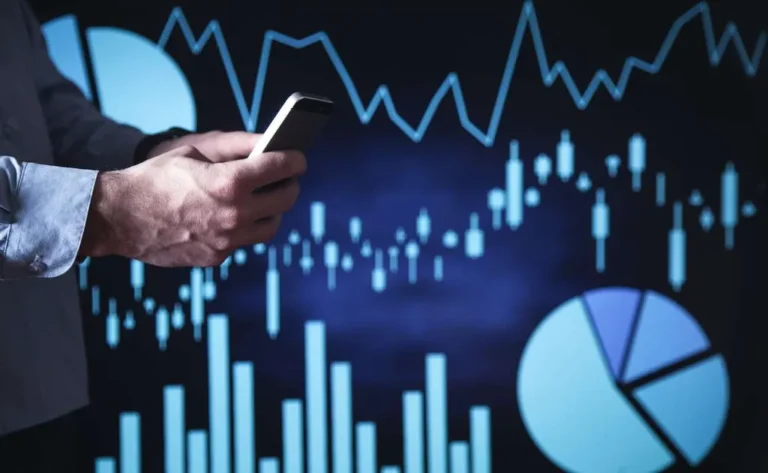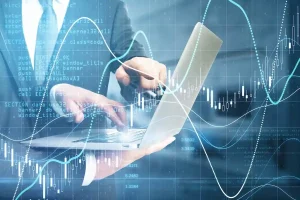Discovering new investment opportunities requires paying close attention to betting markets where participants make and trade insights about future developments. In this guide, we will explore the meaning of prediction markets (PMs) and demonstrate how they can be utilized to enhance forecasting. Using extensive knowledge of the finance industry, the theory of probability, and common wisdom permits one to estimate the likelihood of specific outcomes in different spheres, from business to politics. The value of PMs lies in the fact that they facilitate providing precise predictions by estimating the dynamics of a changing environment without delays.
What is a Prediction Market?
A PM is defined as an exchange-traded environment where individuals bet on a specific outcome and predict how events will unfold in the future. Individuals may bet on a corporation’s annual profits, changes in exchange rates, election results, commodity prices, etc.
Popular prediction services open to the public enable users to stake on possible events in different industries and spheres. They let investors explore hedging opportunities and protect their capital against possible risks.
The first modern PM on Wall Street was established in 1884 when the anticipation of the presidential election in the U.S. started to affect the stock market. By analyzing fluctuating prices, it is conceivable to accurately recognize the widespread sentiment.
When many people share a belief that an event is likely to occur, they place higher bets on the desired outcome. In public markets, individuals typically lay bets on intangible events. They may believe that certain stocks will be in high demand at some point in the future if a party emerges as the winner at the end of the election cycle. PMs enable individuals to bet on tangible outcomes and wager on election winners. While they are more speculative, they facilitate analyzing sentiment and identifying trends.


Turnkey Brokerage Solution For Your Business
Get the most profitable fully licensed fx/crypto brokerage software or ready-to-operate business in 48 hours. Best-in-class web & mobile trading platforms, sales-driven CRM, full integration with MT4/5, and 150+ payment providers.
How do Prediction Markets Work?
People have always been interested in the future. They are willing to put wagers on a variety of events besides sports and politics. Investors want to mitigate risks by analyzing the possible developments of financial markets, while voters need to understand how policy changes may affect their well-being. On-target weather forecasts enable businesses to make the right decisions to ensure the safety of their equipment.
In predictive markets, participants purchase and sell shares in the event outcomes. As a result, price changes reflect their shared beliefs and demonstrate the probability of a result. If the estimations are true, traders who believe in the right outcome earn money.
Prices range from $0 to $1, which demonstrates the likelihood of an outcome. If the events unfold as traders expected them to, they will receive $1 per every share they hold. Due to this principle, people are provided with a tangible incentive to make fact-based predictions. Thanks to these mechanisms, large volumes of information about common opinions get collected and analyzed.
PMs are different from widely used forecasting models like public polls because they are more effective. While estimates made by expert groups may seem relevant as they are based on facts and the deep knowledge of different industries, the aggregated summary of many independent guesses may serve as a basis for more detailed prognoses in politics, healthcare, finance, and other areas.
Types of Prediction Markets
Even though the industry is still in development, it is possible to discern a range of PM models based on different forecasting mechanisms. Below, we have described the most common categories:
- Continuous Double Action (CDA): Using this mechanism, web-based services match buyers and sellers, which makes them somewhat similar to traditional tools deployed on the stock market. However, the usage of CDA implies that traders purchase and sell bets. When a certain outcome becomes more likely to come to life, it impacts prices. The operator must keep a ledger of each trade to ensure the stakeholders will get payoffs.
- Automated market maker (AMM): Such solutions facilitate enhancing liquidity in the markets with a limited number of participants. The operators function as a counterparty and change the amount of payoffs depending on the number of bets. This mechanism is utilized by sports betting platforms. A service offering its clients an opportunity to predict market developments may struggle with liquidity issues. Solving them necessitates using AMM systems to ensure every trader’s bid will be accepted. If a person wants to bid on the bank shares, their request will be processed even if there are no sellers available.
- Play Money Markets: Some PMs enable users to bet tokens instead of real money, which allows these platforms to avoid the wrath of regulators. This way, they can operate legally without getting fined for using money in the areas where online gambling is prohibited.
Using prediction markets crypto enthusiasts can also lay stakes safely. Due to decentralized platforms accessible from anywhere, individuals enjoy full transparency and conduct operations without risking their funds. Unlike traditional PMs, such services do not have to meet regulatory constraints.
Each of these types of crowdsourced forecasting has its strengths and weaknesses. Making the right choice requires analyzing their differences and selecting a result-yielding option. It enables traders to boost their profits.

Benefits of Prediction Markets
Even though the usage of such forecasting tools still remains controversial, as some people doubt their feasibility when it comes to making complex estimates, individual investors have started to recognize the advantages of listening to the wisdom of the public. By collecting the prognoses made by traders and analyzing their potential, it becomes attainable to formulate well-balanced forecasts while taking into account potential industry transformations.
Below, we have outlined the advantages of prediction markets:
- High accuracy
- Real-time updates
- Uncertainty mitigation
When individuals risk their funds when placing stakes on outcomes, they embrace a careful approach trying to collect as many insights as they can. They analyze information about past performances, process historical data, and consider other relevant details to make a weighted decision. According to statistics, people who wager their funds make more valid predictions.
When traders trade real-world securities, they utilize a mechanism similar to bets. They evaluate the possibility of a specific event based on the expected changes. One should not disregard the ethical concerns about PMs. For instance, many traders were wondering “Is PredictIt legal?” as the platform has problems with CFTC. Besides, such services often struggle to attract liquidity as they focus on rare events.
Real-World Example of Prediction Markets
One of the most well-known success stories is the Iowa Electronic Market (IEM). The experiment was launched by the faculty of the University of Iowa’s Tippie School of Business. It demonstrated the tremendous potential of predictive mechanisms based on the crowd’s opinion.
The participants used their assets to bet on the presidential election’s outcome. The experiment showed that the individuals who risk their money by betting it on the result provided more accurate prognosis. It also heightened the unreliability of opinion polls.
CFTC and the SEC have repeatedly emphasized that they will not regulate the IEM as the platform does not function for profit. Its sole purpose of existence is to compare the effectiveness of forecasting tools in the academic setting.
Similar to other PMs, the IEM relies on crowdsourced prognoses. Hundreds of participants offer their opinions and bet on plausible outcomes, which, in turn, impacts prices and various events.
What Is a Decentralized Prediction Market?
The rapid development of blockchain technology resulted in the emergence of a new type of PM and dissipated common concerns regarding the future of the industry. Such platforms are more transparent and better protected from unauthorized access and manipulations. They operate based on smart contracts, which enhances their global accessibility and allows them to remain tamper-free. The safety of such PMs results in increased liquidity.
Services like Polymarket became the leaders of this industry. The platform operates on the Ethereum blockchain using Polygon for better scalability. It enables users to bet on a multitude of topics and leverage the distributed ledger technology to analyze external data. Decentralized prediction markets (DPMs) aren’t controlled by a single entity. Smart contracts are used to record bets between traders, and the advanced voting mechanism is used to estimate the outcome.
Despite the seeming reliability of DPMs, many investors share concerns about the ethical side of using prediction DeFi services. Some traders believe that such platforms can be manipulated. The fact that they are not regulated by central authorities leads to a host of dangerous consequences. Augur, one of the first platforms offering an opportunity to bet on all kinds of events, was labeled an “assassination market” when people started to bet on the deaths of public figures.
Learning how to navigate the existing prediction markets enables traders, investors, and other individuals to utilize them to build risk-free strategies. Harnessing the power of crowd intelligence, a business may receive actionable insights to achieve sustainable growth. The proven effectiveness of crowdsourced prognoses makes them an important tool for those who want to forecast future market development and safeguard their investments against unexpected turns of events.






